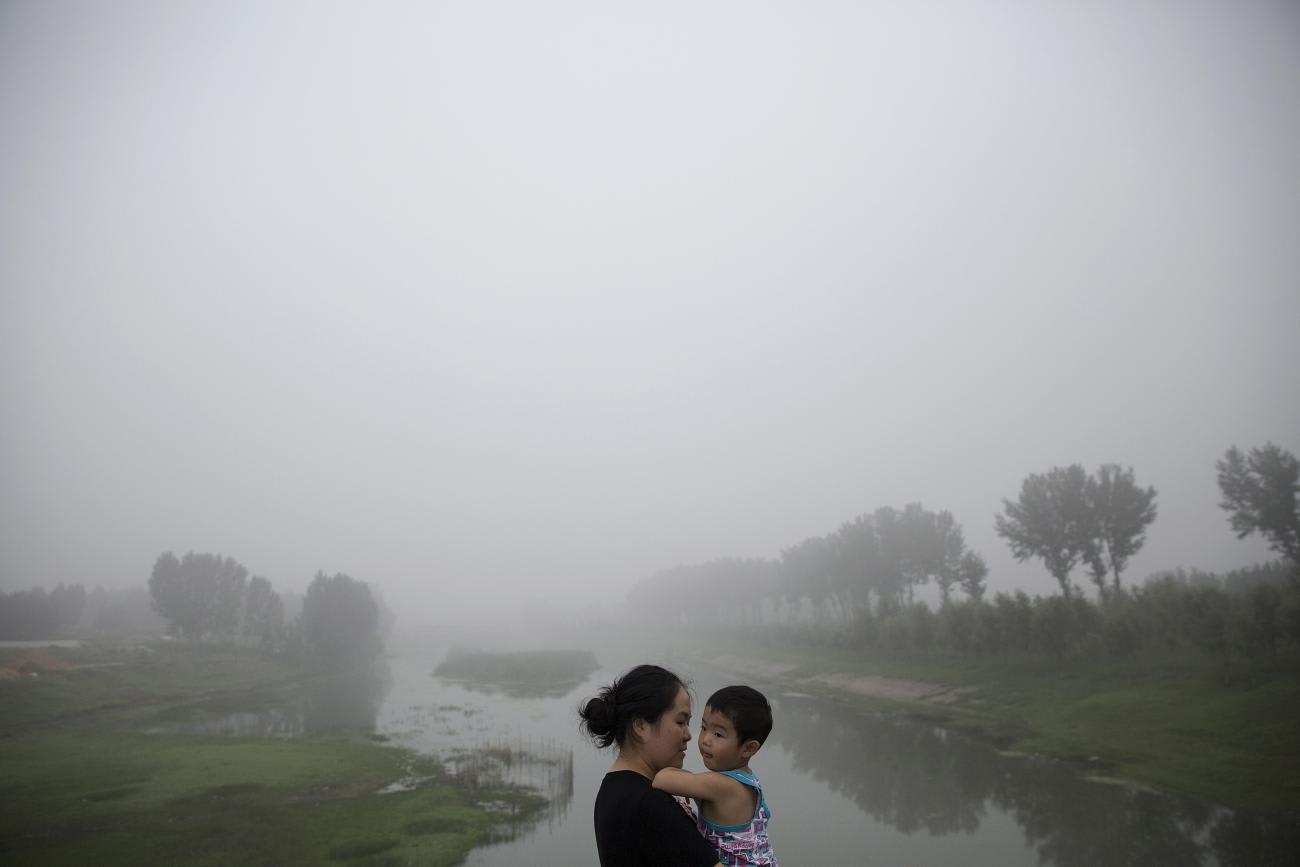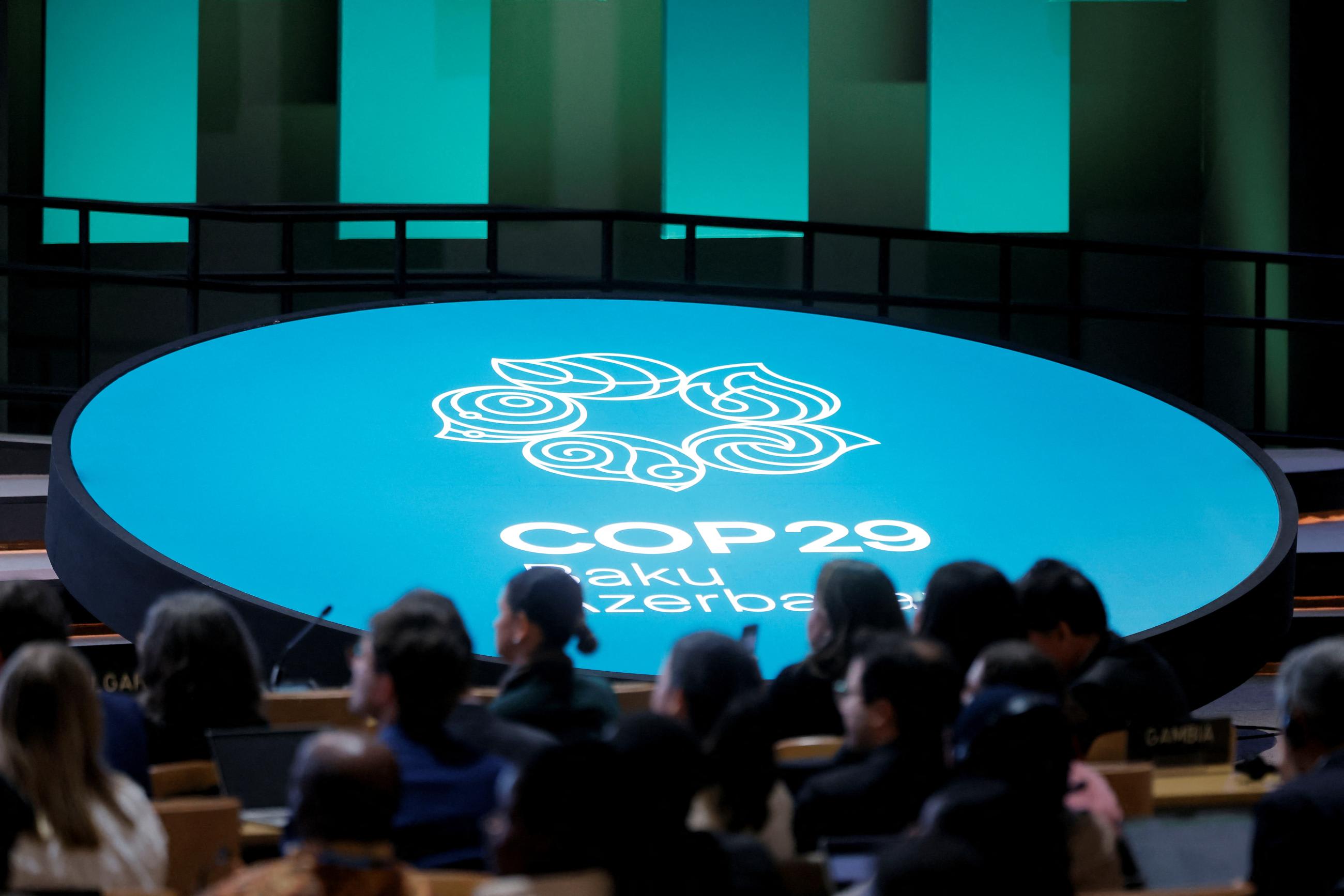Amid growing geopolitical instability, and after 10 years of unprecedented global temperatures marking a "decade of deadly heat," diplomatic efforts to address the health impacts of climate change are more important than ever.
The past year will be remembered as the first that global temperatures breached 1.5°C (2.7°F) above pre-industrial times, the resulting climate extremes killing thousands, displacing millions, and threatening livelihoods worldwide. At the same time, following a historic year of elections globally and amid major wars and political turmoil, 2024 saw significant political shifts away from climate-friendly parties and policies.
To regain some of the political momentum lost in 2024, policymakers will need to explore ways to strengthen public support for action on climate change and global health.
Wavering Momentum
Progress on many of the expected milestones for climate and health diplomacy fell short in 2024. The twenty-ninth Conference of the Parties (COP29)—the United Nations (UN) climate conference that took place in Azerbaijan—led to only a modest increase in climate finance, leaving developing nations disappointed and the sense that climate diplomacy was at a low point. UN conferences on biodiversity, desertification, and plastics all failed to reach an agreement, pushing negotiations to 2025. Adding to those setbacks, after 12 rounds of negotiations over the course of three years, governments have still not finalized a global pandemic agreement.
Policymakers will need to explore ways to strengthen public support for action on climate change and global health
This lack of consensus could be explained—at least in part—by the record-breaking 74 national elections that took place in 2024, including in countries that are major greenhouse gas emitters and hold sway over global climate policy, such as the United States, the European Union, India, Mexico, and South Africa. Many national governments were preoccupied with winning voters at home rather than delivering on global agreements.
Despite polls pointing to the public's concern about climate change and the environment, climate action was conspicuously absent from most election campaigns. Climate change, for example, did not play a significant role in the debates of the 2024 presidential election in the United States, the world's largest historical emitter, despite the candidates' markedly different climate agendas: President-elect Donald Trump's plans are expected to lead to an additional 4 billion tons of U.S. emissions by 2030 rather than a continuation of existing climate policies put in place under the Biden-Harris administration, such as the Inflation Reduction Act, which includes some $400 billion for climate-related measures. Similarly, the fate of global health programs and budgets is uncertain amid political transitions in the United States and many other donor countries.
Health Diplomacy in the Climate Crisis
The global health community has suggested that the health argument for climate action could help build more bipartisan support for cutting emissions. This argument points to the ways in which climate change shapes people's personal health and well-being—and that of their children and grandchildren—while highlighting the positive health effects of climate action, such as through lowering air pollution.

Citizens and voters all over the world are concerned about their livelihoods, security, and the future of their children. By making more explicit connections between climate policies and people's personal health, lives, and livelihoods, governments could convince citizens that green policies will benefit them personally.
Health has also proven to be a helpful lens to bring into focus the inequities of climate change, given that low-income communities and countries bear higher health risks from extreme heat, greater food insecurity, increased rates of chronic illness, and the brunt of pollution. To be effective in 2025, governments will need to address voters' concerns and anger over the growing inequity and economic insecurity in societies. Delivering improved health outcomes and standard of living will be an important metric of success for any policy.
Health is increasingly visible in global climate debates and on many countries' climate agendas. Governments collectively recognized the connection between climate change and human health for the first time in 2023, when 150 countries adopted a political declaration on climate and health at the COP28 UN climate conference in Dubai, United Arab Emirates. In 2024, a follow-up resolution was adopted at the World Health Assembly, and the Group of 20 passed a ministerial declaration in Rio de Janeiro, Brazil, giving the COP28 declaration a stronger mandate. Last December, the COP29 UN climate conference included discussions on measuring progress toward the global goal of adapting to climate change, including by developing health-specific indicators. This year, the climate change and global health agendas will continue to move closer together in important ways, including in the areas of extreme heat and air pollution and as part of government efforts to develop new climate plans in 2025.
Climate and Health, Intertwined
Extreme heat is one of the most direct ways that rising temperatures lead to poor health and death. The past year registered record-shattering global temperatures and is set to be the warmest yet. UN Secretary-General Antonio Guterres has coined this the decade of deadly heat and has shared a call to action seeking stronger international cooperation to address extreme heat. In 2025, global initiatives such as the Global Heat Health Information Network and the Early Warnings for All initiative will scale up their work, and a growing number of cities are developing heat-health action plans.
Air pollution from burning fossil fuels is responsible for around 1 in 5 deaths worldwide, and transitioning away from fossil fuel-based energy sources would deliver large health benefits from cleaner air. Many governments are now committed to rapidly expanding renewable energy sources, and a growing evidence base and real-life examples show that cutting emissions can bring significant, local, and rapid health benefits to people. The World Health Organization (WHO) will be hosting a second global conference on air pollution and health in Colombia in March, exploring additional policy solutions to tackle air pollution.
The Road Ahead in 2025
The next round of national climate plans—known as nationally determined contributions (NDCs) to the Paris Agreement—are due in early 2025 and will detail countries' intended climate actions through 2035. The WHO recently published guidance detailing how countries can integrate health into their climate plans. Examples of best practice from past plans include Colombia's assessment of the health and economic gains from its climate target, Laos's and Uganda's detailed plans to build climate-resilient health systems, and Vanuatu's specific policies to deal with the health impacts of climate change on its communities, including from climate-induced displacement. In publishing updated NDCs, governments in 2025 have an opportunity to lay out ambitious policy blueprints for more climate-resilient and prosperous societies.
The health argument exposes the cost of climate inaction by emphasizing lived experiences
National climate plans will be scrutinized at the COP30 UN climate conference in November, which will take place in the Amazon city of Belém, Brazil. Home to the Amazon rainforest and a significant Indigenous population, the climate conference in Brazil will likely spotlight the connections between climate policy, preserving nature, and ensuring healthy communities and livelihoods. It will also be the most significant climate conference to date for climate and health; COP30 is due to agree on a set of health-specific indicators to measure progress toward the Paris Agreement's Global Goal on Adaptation. The conference will also benefit from deepening diplomatic partnerships, including the Friends of Climate and Health, an informal network of countries interested in integrating health considerations in climate policy processes—and growing financial support for climate and health solutions.
Global health's growing prominence in climate policy and diplomacy arrives just as the scale, frequency, and cost of climate-related health threats have grown exponentially. The health argument exposes the cost of climate inaction by emphasizing lived experiences and pointing to the lost lives and livelihoods resulting from decades of climate denial and delay. As the world confronts the growing health threats of climate change, the question now is whether the health argument for climate action can galvanize the necessary public and political support to get countries back on track.













